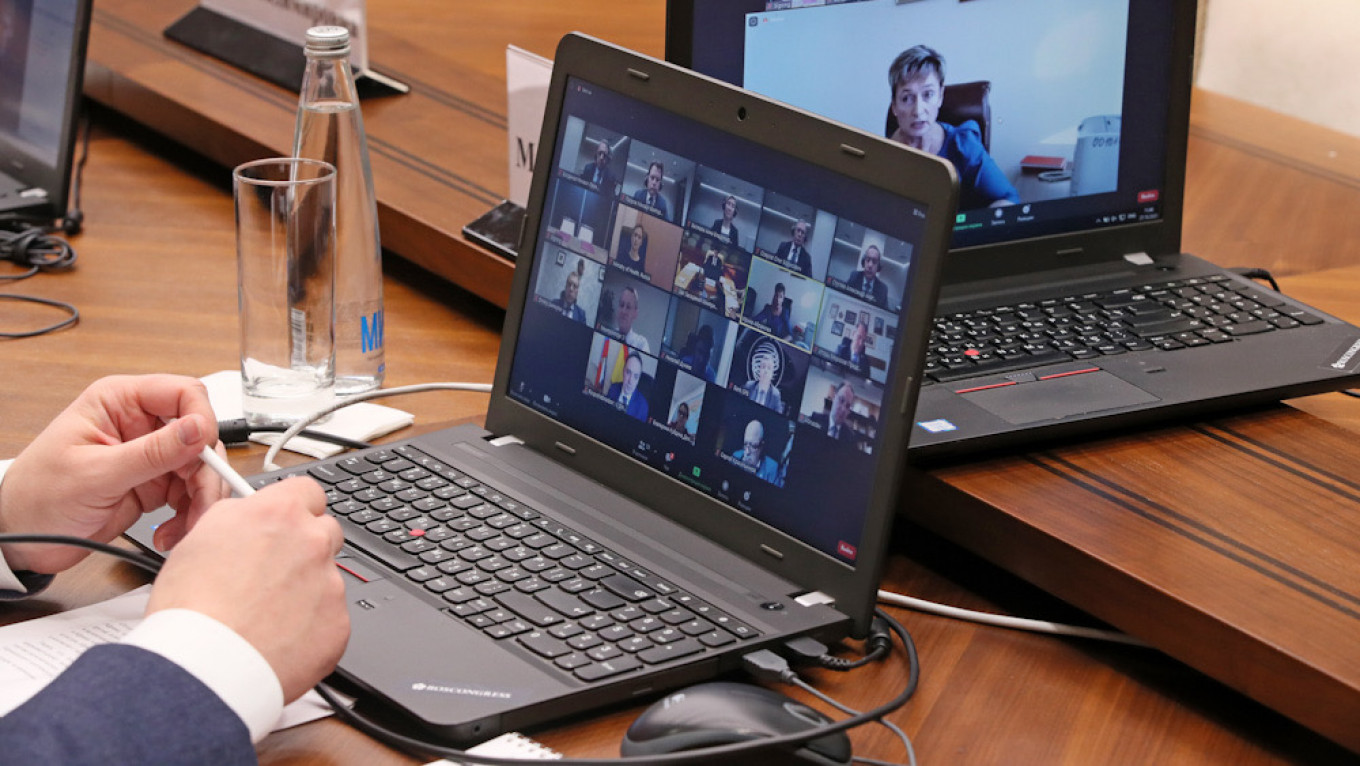
Updated at 11:00 a.m. on April 8 to add Zoom statement.
Video conferencing platform Zoom has banned its distributors from selling services to government agencies and partly state-owned companies in Russia and neighboring countries, the Kommersant business daily reported Wednesday.
Zoom has emerged as a leading virtual meeting platform since millions were forced into self-isolation due to the coronavirus pandemic and authorities imposed remote work rules to stop the spread.
Zoom’s authorized partner in Russia, RightConf, informed its Russian and ex-Soviet partners that the company is withdrawing sales licenses for state agencies and organizations with state beneficiaries, according to Kommersant.
Experts interviewed by Kommersant linked the ban to risks of U.S. sanctions and difficulties complying with Russian legislation, which Moscow began enforcing in full in recent years.
Zoom denied that it had banned sales to public-sector entities in Russia and the CIS after the Kremlin urged Russian companies to develop alternatives to Zoom and a lawmaker warned it could be blocked in the country.
“Zoom continues to be committed to serving customers in the Russian market and the Commonwealth of Independent States (CIS). We are in the process of evolving our approach in the region, and in the meantime, new and existing customers in both the public and private sectors can seek to procure Zoom accounts directly through our website,” a Zoom spokesperson told The Moscow Times.
Zoom’s policy could affect the Russian education market, Kommersant reported, adding that the company took part in dozens of tenders announced by Russian colleges and universities in 2020.
Zoom Video Communications, which occupies a quarter of Russia’s video conference market but generates only 1% of its revenue from it, did not respond to Kommersant’s inquiries.
Russia, which already requires tech companies to pre-install their devices with government-approved Russian software, has vowed to introduce its own Zoom replacement by 2022.